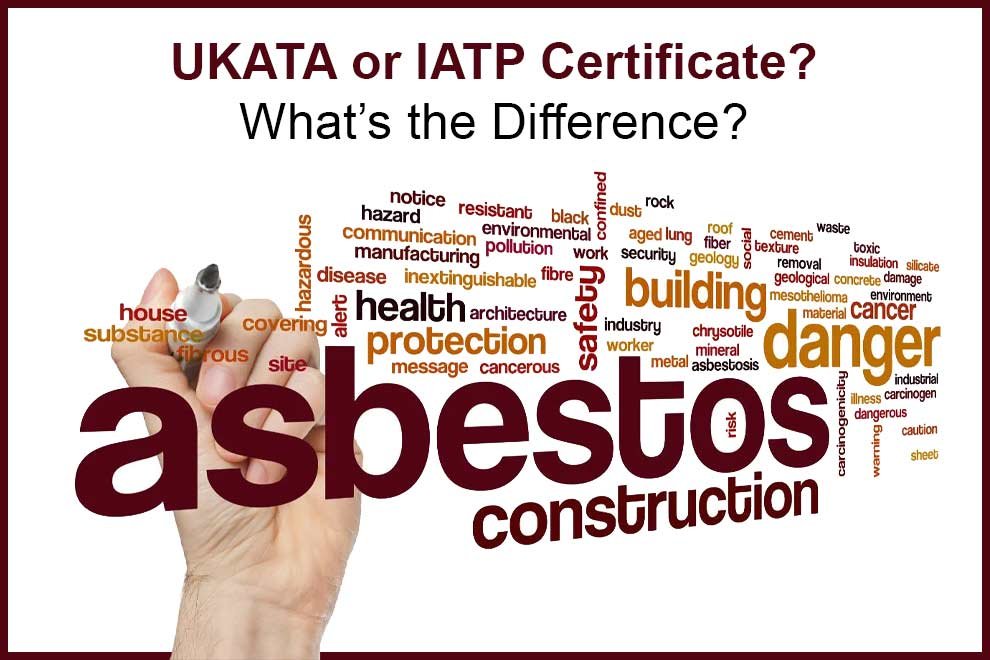Trying to decide between UKATA and IATP? It’s confusing. Both offer asbestos awareness training. Both sound official. But which one’s right for the job?
This guide breaks it down. No fluff. Just the facts.
What Are UKATA and IATP?
UKATA and IATP are two training bodies. Both focus on asbestos safety. Both approve training providers. That’s where the similarities end.
What Is UKATA?
UKATA stands for the United Kingdom Asbestos Training Association. It was set up in 2008. It’s an industry-recognised group. It checks if training providers meet strict standards.
UKATA asbestos awareness training is often preferred by big construction firms. They see it as more regulated. More consistent. UKATA has tight rules for trainers. Only approved providers can issue certificates.
What Is IATP?
IATP is short for the Independent Asbestos Training Providers. It’s a not-for-profit group. A bit more flexible. IATP checks if providers follow HSE guidelines. But it lets them run their training their own way.
IATP Asbestos Awareness Training is popular with smaller companies. It’s often easier to book and involves less paperwork. Trainers still need to meet certain standards. But there’s more room for variety.
How Are They Similar?
UKATA and IATP both focus on safety. They both teach people how to stay safe around asbestos.
Both meet the legal requirement under the Control of Asbestos Regulations 2012. Both can be used to prove compliance. Neither one is “better” in law.
Courses from both groups usually last half a day. Most are available online. Both give you a certificate that lasts one year.
Key Differences Between UKATA and IATP
On paper, they look alike. In practice, there are a few clear differences.
Training Provider Approval Process
UKATA uses a formal approval system. Trainers go through audits. They need to meet fixed criteria. That includes course content, trainer experience and delivery method.
IATP asks trainers to self-certify. There’s no central audit. Instead, trainers submit proof they meet legal standards. It’s less strict, but faster.
Recognition and Industry Preference
UKATA is better known in the construction sector. Larger firms and councils often ask for it by name. IATP is more common among smaller businesses and subcontractors.
If a client says “UKATA only”, then that’s the one to go for. Same goes if a job site has set rules.
Course Format and Delivery
Both offer online and in-person options. But UKATA has more structured content. IATP allows more variation. Some IATP courses might be cheaper or more flexible. Others might not meet every client’s expectations.
Which Certificate Do You Need?
Not everyone needs the same thing. It depends on your job, your client, and what’s written in your contract.
Let’s break it down.
Are You a Contractor or Site Manager?
Most construction sites ask for UKATA. Some don’t care, as long as you’ve done the training. Others are strict. If you’re working on big jobs, UKATA’s the safer bet.
For small maintenance tasks or one-off jobs, IATP is usually fine.
Is Your Employer or Client Asking for a Specific Body?
Always check first. Some companies only accept UKATA. Some don’t mind either way.
If you choose the wrong one, you may have to redo the training. That’s time and money gone.
Do You Need Flexibility in Training Format?
UKATA tends to follow one set way. The course looks the same across providers. It’s consistent.
IATP gives trainers more freedom. That means you might find quicker options, cheaper prices or more online choices. Just check what’s included.
Legal Validity and Compliance
Both meet the same law. The Control of Asbestos Regulations 2012 says workers need awareness training.
It doesn’t say which group you must pick. UKATA and IATP both qualify. As long as the course meets HSE guidance, it’s valid.
Employers are responsible for checking this. Not just ticking a box. So if you’re in charge, read the course info before booking.
Costs and Availability
Prices vary.
UKATA training can cost more. That’s because of the audits, branding and stricter rules. But it also gives a sense of trust. Many big clients are willing to pay for that.
IATP training is often cheaper. Some providers bundle it with other courses. Others run discounts.
Booking is usually faster with IATP too. Less red tape. Fewer forms.
But remember: cheap isn’t always better. Look for quality, not just price.
Final Word: Don’t Overthink It
Both UKATA and IATP do the job. They teach you what asbestos is. Where it’s found. How to avoid it. And how to stay safe.
The law doesn’t say which one to choose. That’s up to your job role, your employer and your budget.
If your client wants UKATA, go for that. If you want a quicker option, IATP might work. Just make sure the training meets HSE standards.
In the end, it’s not about the name on the certificate. It’s about what you learn — and how well you use it.
Also Read: Inclusive Coding Academy Launches Unique Strength-Based Transcript and 21st Century Skills Certificate










